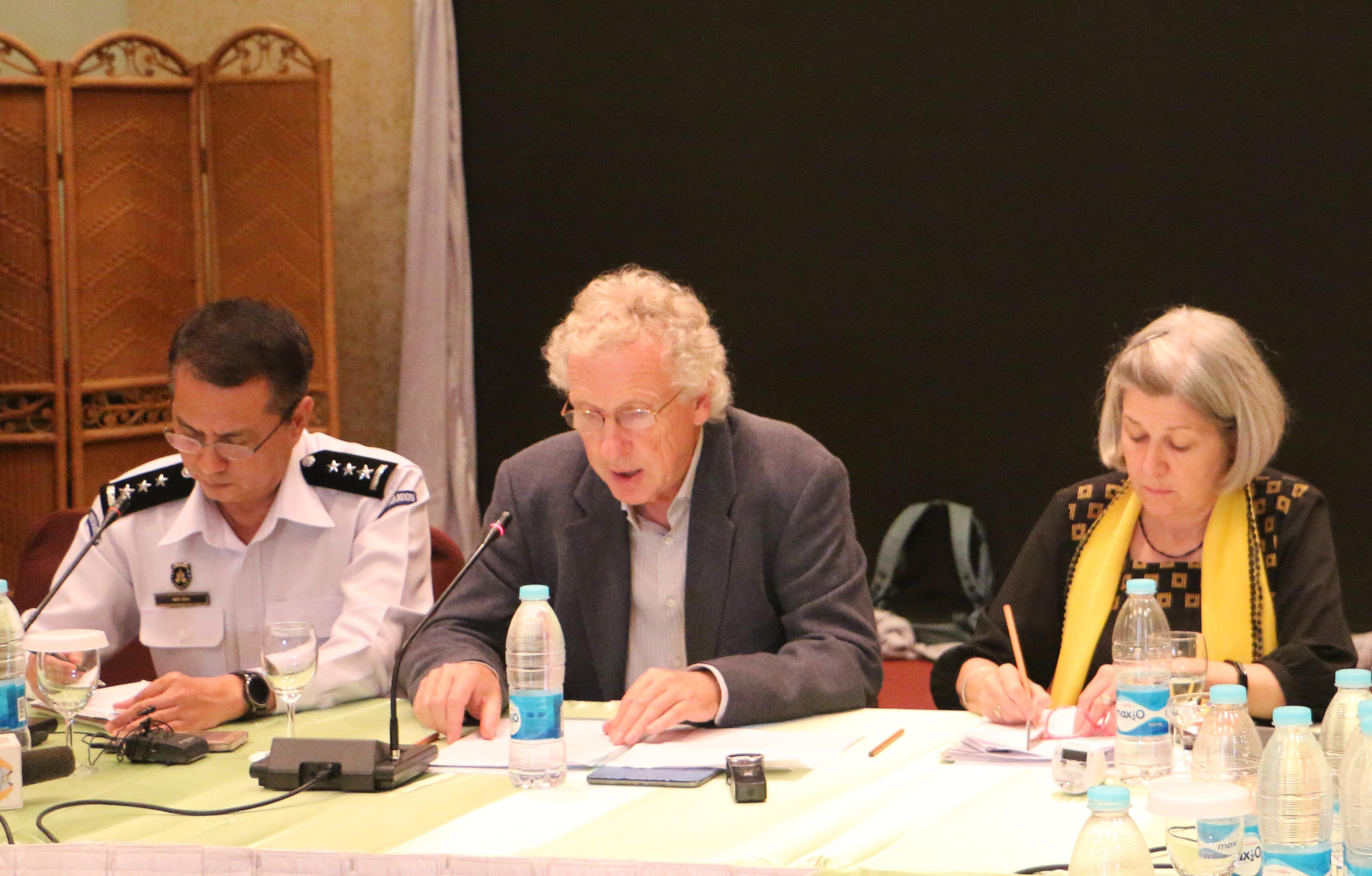Nay Pyi Taw
Note: The International Technical Advisory Board (ITAB) was formed in January 2013. ITAB’s role in the 2014 Population and Housing Census in Myanmar is to provide advice to the Government on proposed census processes and activities. In addition, they ensure that the census follows international guidelines and good practice. The views and opinions expressed by ITAB do not reflect the official policy or position of the United Nations Population Fund (UNFPA).
On behalf of the International Technical Advisory Board (ITAB) for the 2014 Population and Housing Census of Myanmar, we would like to thank you all for attending this press briefing. This is the 7th in-country meeting with the Ministry of Labour, Immigration and Population and UNFPA, to review the implementation of the Census, and in particular, the dissemination of the Census results. ITAB members are experts in demography, statistics and, censuses and it is the role of ITAB to provide technical advice to the Government to ensure compliance with international census standards and to share experiences from census taking in other countries.
Following the release of the main results of the Census in May 2015, the Ministry of Labour, Immigration and Population has released data on occupation and industry in March 2016 and data on religion in July 2016. In regard to data on religion, ITAB is pleased with the consultative process in the lead up to the release of the data, which took into account advice, concerns and recommendations of key stakeholders, including religious groups and the National Advisory Committee (NAC). Such consultations ensured that the data were released in a manner that was responsive to the sensitivities of stakeholders and was positively and peacefully received across the country.
ITAB notes that dissemination of the Census data to lower administrative units is progressing well. Dissemination workshops have already taken place in 70 out of 74 Districts. These District level dissemination meetings involved wide participation of local stakeholders, including Civil Society Organizations, sectoral ministries, the private sector and ethnic representatives. This inclusivity has the potential to increase the capacity of stakeholders to utilize the Census data for development, including the allocation of resources for planning and evaluation of programmes. ITAB encourages the Department of Population to continue with this model of dissemination down to the township level.
ITAB notes that the Census data continues to be widely used, for example in addressing high early childhood mortality rates in some States/Regions, investment in health facilities by aid agencies, and in medium and long term development planning in the country at the State/Region and Union levels.
Three thematic reports have been launched so far, these are Fertility and Nuptiality, as well as Mortality and Maternal Mortality. ITAB considers that these reports are of high quality, informative and policy relevant. A further three are in the final stages of production, in addition to a Census Atlas presenting Census data in relationship to a number of geographical areas at the State/Region, and District levels. ITAB commends the Department of Population and UNFPA for all the hard work that has been invested in this. In acknowledging this, ITAB urges acceleration of the production of the remaining seven reports, so that they can be available in a timely manner.
To further facilitate access to data, ITAB recommends that the Department of Population produce a public-use micro-data file. This is a sample of the Census data records that can be used by researchers, policy-makers and others to derive statistical results that are not included in Department of Population Census publications. It is essential that this file be created in a way that guarantees the protection of individuals’ privacy and confidentiality. No individual person or household will be identifiable through the use of this file.
At the meeting, ITAB heard from consultants who are undertaking an independent evaluation of the Census processes and the quality of the Census data. Intermediate results of the evaluation were presented, and ITAB looks forward to reviewing the final report.
In regard to the release of ethnicity data, ITAB understands current sensitivities and urges inclusive ethnic consultations to continue at both the Union and local levels. We believe that it will be conducive if the political leadership at the highest level announces a clear structure for determining the process for the eventual release of the ethnicity data. This should be closely coordinated with other relevant political and peace processes.
ITAB recognizes the exceptional circumstances under which the census was undertaken and commends the political leadership and the dedication, commitment and technical expertise of the Department of Population. We also recognize that the success of the Census would not have been possible without the financial support of the international community and the technical support of UNFPA. For future and timely censuses it is imperative that investments are made to build national institutional capacity, and ensure that arrangements are made so that sufficient resources are allocated well ahead of future censuses.



